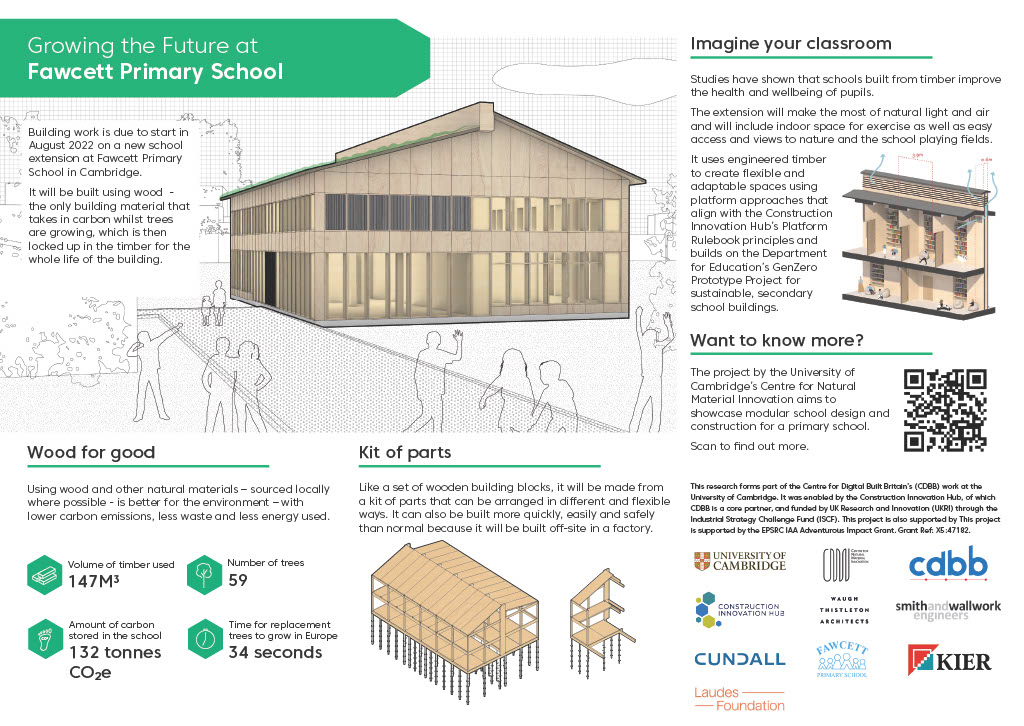
Submitted by Jo Dickson on Thu, 31/03/2022 - 08:42
A Construction Innovation Hub enabled project by the University of Cambridge’s Centre for Natural Material Innovation (CNMI) aims to showcase the benefits of modular school design and construction through a demonstrator project at a primary school in Cambridge.
The design for a new school extention at the Fawcett Primary School in Cambridge uses engineered timber to create flexible and adaptable spaces. It uses platform approaches that align with the Construction Innovation Hub’s Platform Rulebook principles and builds on the Department for Education’s GenZero Prototype Project for sustainable, secondary school buildings.
The cutting edge school building design was shared with pupils from Fawcett School and their parents at the Trumpington Meadows Science Festival in March 2022 with a short visual summary produced to explain the benefits of the project. Explore the links on the right hand side of the page to find out more about the research by CNMI exploring the potential for using engineered timber for the production of flexible schools, houses and other buildings.
Wood for Good
The school building will be built using wood - the only building material that takes in carbon whilst trees are growing, which is then locked up in the timber for the whole life of the building.
Using wood and other natural materials – sourced locally where possible - is better for the environment – with lower carbon emissions, less waste and less energy used.
Studies have shown that schools built from timber improve the health and wellbeing of pupils. The extension will make the most of natural light and air and will include indoor space for exercise as well as easy access and views to nature and the school playing fields.
Kit of parts
Like a set of wooden building blocks, it will be made from a kit of parts that can be arranged in different and flexible ways. It can also be built more quickly, easily and safely than normal because it will be built off-site in a factory.

